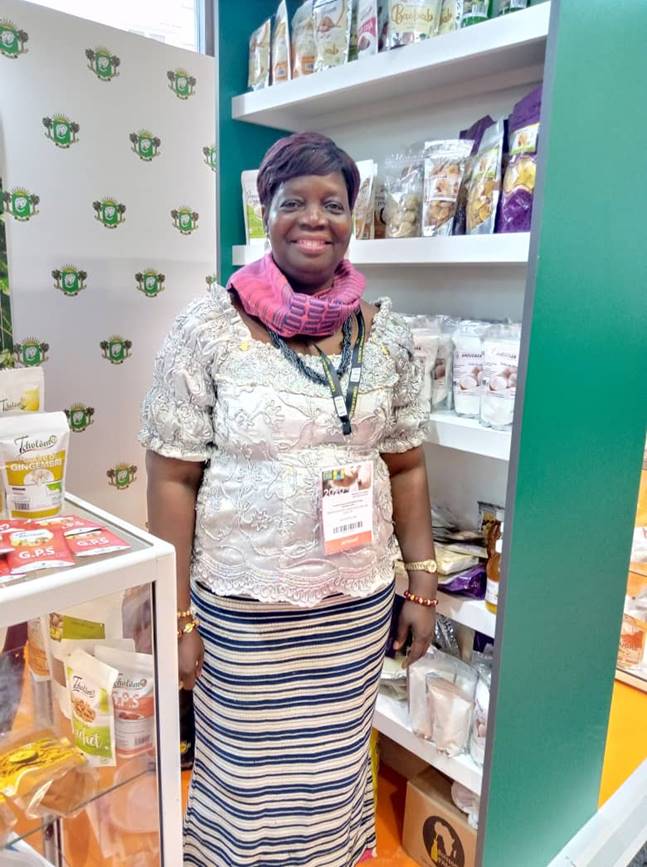The impact of COVID-19 on women: Lucie Gbakoyoro, Ivorian female entrepreneur
Lucie Gbakayoro, 61, works in agribusiness in Côte d'Ivoire. She runs a small cassava processing company and is also president of the Amougnan cooperative in the Guémon region (west of Côte d'Ivoire), which brings together around a hundred members, mostly women. She tells UN Women about the impact of COVID-19 on her business and her life.Date:

Immediate loss of income
Women-led businesses are particularly affected by the COVID-19 crisis. MSMEs represent a significant share of businesses run by women. Women businesses are also concentrated in sectors with lower productivity, such as agriculture or services. These companies are particularly fragile and experience problems to access to finance in normal conditions, and during crises, they have little room for maneuver to cushion economic shocks.
In the case of Ms Gbakayoro, the cancelation of the Paris Agricultural Fair as a result of COVID) 19 meant a net loss for her small business that employs 4 people, as well as for the members of the cooperative society of which she is the president. “In preparation for the Fair, we had increased production to display and sell our products because this event represents an important opportunity to increase our turnover. The cancellation of the exhibitions led to a loss of income but also a loss of products that cannot be kept over the long term, in particular products without the addition of preservatives like those from my company, ”she confides.
The local economy is also affected, she says, especially with the closure of shops and restaurants where Lucy sells her products. The crisis is also affecting access to local markets where attendance has dropped as a result of social distancing measures. If the market once had a hundred selling points, today there are only 50 in order to respect a distance of one meter between them; she explains. She wishes that a rottion system of , she proposes to set up a rotation system over 2 or 3 days so that each seller can access the market and thus reduce their losses.
No savings and an uncertain future
Because of the bank loans previously contracted, companies like Lucie Gbakayoro’s continue to repay their maturities. According to her, "if the crisis continues, women will no longer be able to sell their products and will be left to fend for themselves. We will soon no longer be able to pay our rents, our bills, or even our bank commitments. Under these conditions, my company can survive 3 weeks,… a month at most”.
Governments around the world have taken measures to alleviate the economic consequences for MSMEs. In Côte d’Ivoire, Gbakayoro explains that she has heard of such measures to help entrepreneurs. She has filed a number of online forms but there has been no news to date. “What we need is refinancing to help us repay loans and cover losses related to the crisis. Without this, we will no longer be able to continue in business”. If the situation continues, it will be very difficult for companies like Lucie Gbakayoro to overcome it. “Borrowing from families has become difficult, the situation is forcing people to focus on basic needs. Nobody has money to lend. Tax breaks are not enough. At this rate, in a few weeks, there will be nothing left to be taxed.” she worries.
UN Women and the Ivorian SME agency are conducting a survey to assess the impact of COVID-19 on Ivorian women-led SMEs. The results should help design measures to support businesses like those run by Ms Gbakayoro.